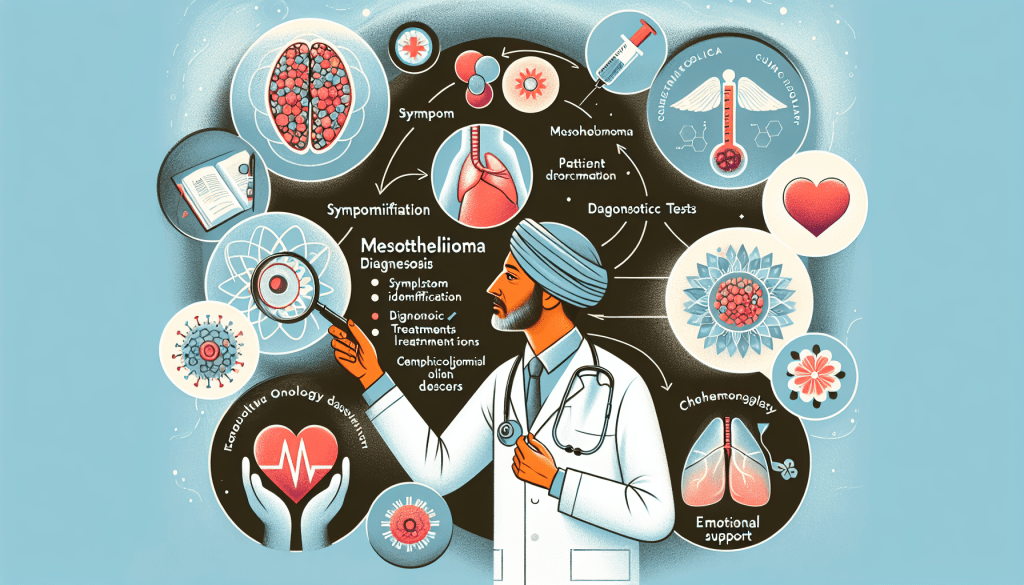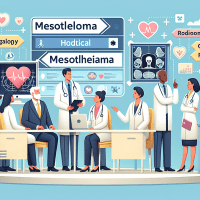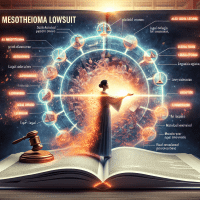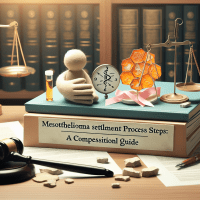Mesothelioma Diagnosis Information: A Compassionate, Expert Guide
By an experienced oncology patient educator and advocate

My Journey and Commitment to the Mesothelioma Community
Hello, I’m deeply committed to supporting those affected by Mesothelioma. Over the years, I have worked closely with patients and caregivers in oncology, witnessing both the hardships and the resilience of the human spirit. In sharing my personal insights and professional expertise, I hope to provide a clear and empathetic guide through the complex process of Mesothelioma diagnosis, care, and recovery. This post is current as of June 2024 and is based on the latest research and guidelines from trusted sources such as the National Cancer Institute (NCI), the American Cancer Society, and the Mesothelioma Applied Research Foundation.
Understanding Mesothelioma Diagnosis
Mesothelioma diagnosis is not merely a clinical process—it is a transformative moment for patients and their families. The term itself encompasses both the journey of identifying the disease and grappling with its emotional and physical impacts. I have observed firsthand how timely and accurate diagnosis can significantly influence treatment outcomes and quality of life. This guide aims to break down the complexities involved in recognizing the signs, understanding the tests, and exploring subsequent treatment options.
Mesothelioma Symptoms: Recognizing Early Warning Signs
Mesothelioma symptoms can be subtle, which sometimes delays diagnosis. Common symptoms include shortness of breath, chest pain, persistent cough, and unusual weight loss. Not every patient will experience all these signs, and many symptoms overlap with other conditions. Hence, it is essential to consult with mesothelioma doctors if you notice any persistent changes in your health.
- Shortness of Breath: Often due to pleural effusion caused by inflammation or fluid buildup.
- Chest Pain and Discomfort: Which should prompt further medical evaluation.
- Cough and Fatigue: Although common in respiratory illnesses, when combined with other symptoms they warrant additional testing.
For those wondering how to diagnose mesothelioma, it starts with an attentive observation of these early signs followed by professional medical assessments.
The Mesothelioma Diagnosis Process and Tests
The process of arriving at a Mesothelioma diagnosis involves multiple steps to ensure accuracy. Typically, a patient will undergo the following diagnostic tests:
- Imaging Tests: Chest X-rays, CT scans, and MRIs are used to identify abnormal growths or irregularities in the lining of the lungs.
- Biopsy Procedures: Tissue samples may be collected through minimally invasive or surgical methods. A biopsy is critical in forming a definitive diagnosis.
- Blood Tests: These tests help in assessing the overall health and can indicate markers associated with mesothelioma.
This detailed process, often referred to as the mesothelioma diagnosis process or the mesothelioma diagnosis tests, ensures that each patient receives personalized care based on their specific condition.
Treatment Options and Managing Life Expectancy
One of the most challenging aspects of a mesothelioma diagnosis is determining the appropriate treatment plan. In my experience, treatment isn’t a one-size-fits-all solution. It is tailored according to the stage of the disease, the patient’s overall health, and specific symptoms observed.
Treatment Options Available
The treatment landscape for mesothelioma includes surgery, chemotherapy, radiation, and emerging targeted therapies. Each option carries its own potential benefits and risks, and multidisciplinary teams work together to devise the most effective strategy. For more detailed comparisons, please refer to our internal link on Mesothelioma Treatment Options for a comprehensive overview.
Understanding Life Expectancy
While discussing mesothelioma life expectancy, it’s important to note that survival rates vary widely based on many factors. My goal is to empower you with realistic expectations while also stressing that a diagnosis does not define one’s value or hope for a meaningful life. Continuous advancements in treatment are paving the way for improved outcomes.
Emotional and Practical Support for Patients and Caregivers
Receiving a mesothelioma diagnosis involves processing a whirlwind of emotions. In my role as a patient educator, I have seen how vital it is to provide both factual information and emotional support. Patients and caregivers often feel isolated, and sharing their experiences openly can be a crucial part of the healing process.
Emotional Support Resources
Investing in support systems is just as important as medical treatment. I strongly encourage anyone facing a diagnosis to explore both professional counseling and peer support groups. You can find additional resources and community support via our internal link to Emotional Support Resources for Mesothelioma Caregivers.
Practical Tips for Daily Living
Based on my interactions with numerous patients, some practical suggestions include:
- Keeping an open line of communication with healthcare providers.
- Documenting symptoms and treatment reactions to help tailor the care plan.
- Seeking advice from multidisciplinary teams to ensure a well-rounded approach to treatment and recovery.
Medically Accurate Diagram: Mesothelioma Staging and Treatment Options
The following diagram provides a clear, medically accurate illustration of mesothelioma staging and the corresponding treatment strategies at each stage:

This diagram aids in understanding how mesothelioma progresses and how treatment interventions are adapted as the disease evolves.
Balancing Commercial Disclosure with Informational Integrity
I believe in transparency and honesty. While this blog offers in-depth and impartial information on mesothelioma diagnosis and care, there may be premium services mentioned for further legal or medical support. Any recommendation for additional services is disclosed only after full informational support has been provided. This ensures that you receive unbiased information first, with options to explore further support if needed.
Citations and Further Reading
The guidance shared in this post is supported by the latest research and professional recommendations. I encourage all readers to consult the following sources for further information:
- National Cancer Institute (NCI)
- American Cancer Society
- Mesothelioma Applied Research Foundation
These authoritative sources further detail the advances in mesothelioma diagnosis and ongoing research efforts directed at improving patient outcomes and treatment innovations.
Final Thoughts: Empowerment Through Information and Compassion
In closing, my hope is that this guide provides you with a foundation of understanding and empathy during what can be an overwhelming journey. Navigating mesothelioma diagnosis information is as much about emotional resilience as it is about clinical precision. Each step—from recognizing early symptoms to exploring treatment options—carries its own set of challenges, and it is my privilege to share my experience, both as a survivor of administrative complexities and as an advocate deeply involved in patient care.
Remember, whether you are a patient, caregiver, or simply a concerned member of the community, the path to clarity and healing lies in staying informed, seeking support, and connecting with the broader mesothelioma community. It is a journey best undertaken with detailed guidance and a compassionate heart, ensuring that every decision is made with care and integrity.
Transparency Statement
This website is supported by contributions and partnerships that help us bring you unbiased, fact-based medical information. We ensure that any commercial services mentioned are secondary to providing comprehensive, compassionate care guidance for patients and caregivers facing mesothelioma.






